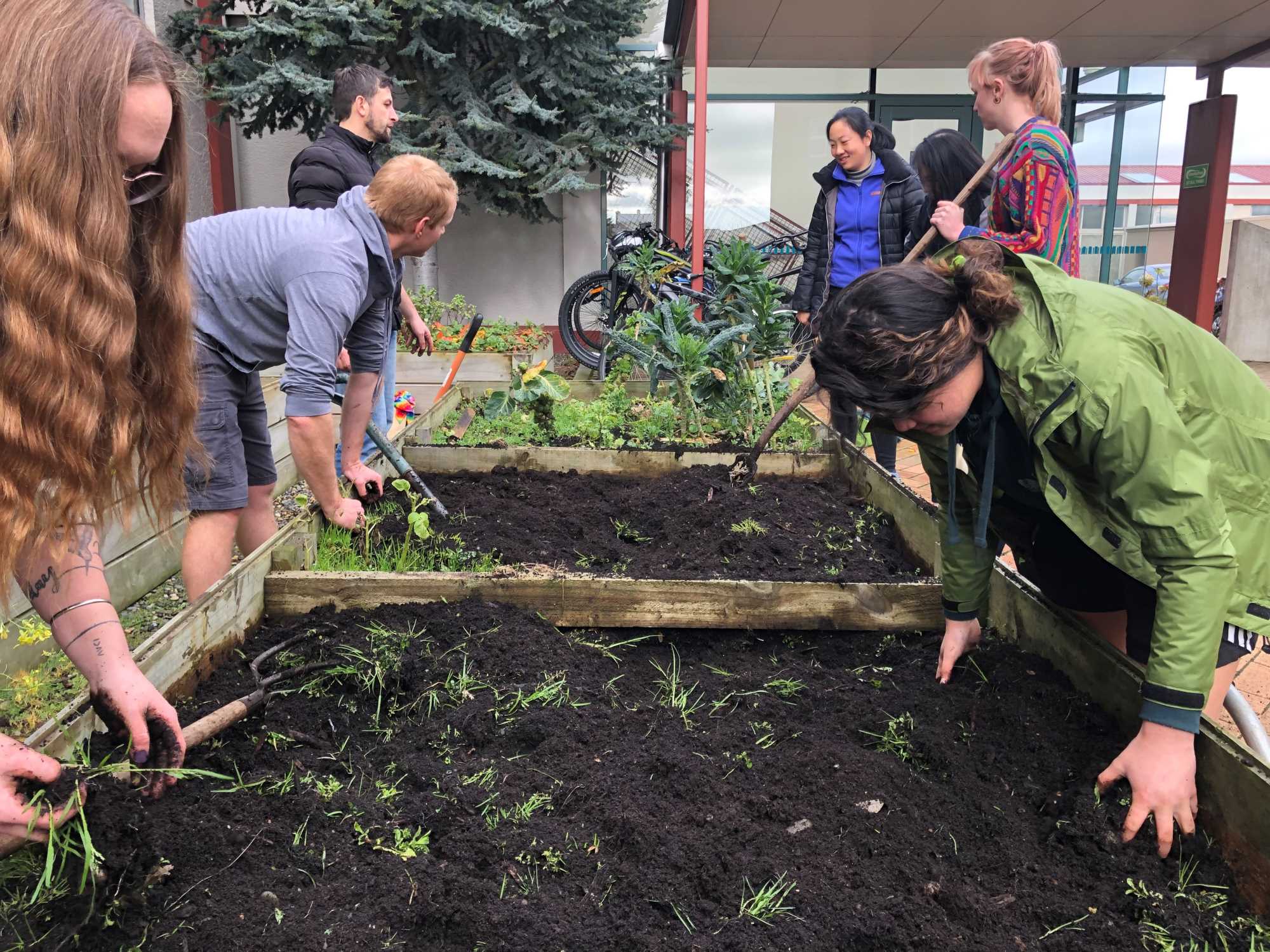
Joining forces on community gardens to help build food security
An initiative to connect organisations with community gardens is under way to help address food insecurity* in Invercargill.
A co-design workshop earlier this year led by Healthy Families Invercargill looking at locally-led solutions to building food resiliency highlighted gardening as a potential solution.
Healthy Families Invercargill system innovator Lauren Richardson, who facilitated the workshops, said nearly two-thirds of the ideas brainstormed at the session had a gardening focus, prompting her to think about how community gardens could be more sustainable and a more effective tool in the food security toolbox.
Connecting community organisations such as Koha Kai, which had a workforce that could help maintain the gardens, was one way of creating that sustainability, and a student community garden at the Southern Institute of Technology, which organisers had been wanting to resurrect, was being used as a prototype to test the concept, Richardson said.

“We know that there are many benefits to community gardens including increased access to fresh foods, increased physical activity through garden maintenance, improved dietary habits through education, increased fruit and vegetable intake, and improved mental health, but sometimes community gardens can struggle to maintain the volunteer levels needed to keep them going effectively.
“If we can link organisations who have people eager to give back to our community with these gardens, we will hopefully be able to improve their sustainability.”
Koha Kai trainees recently spent part of a day working with students from SIT to clear and prepare the SIT garden, as well as tour other gardens in the city.
Koha Kai Whanauora Navigator Anahera Mills said visiting and being involved with the SIT garden was a way for the organisation to give back to its community, and it was exciting to be out and about working in different gardens.
SIT Student Services Team Leader Jenna Shepherd said the garden beds were originally built about five years ago for Youth Week but over time had become less used and maintained.
It was exciting the garden was being resurrected and she looked forward to seeing not only what could be grown, but also the connections that could be made within the community through the garden.
“It’s really (about) trying to have that community connection,” Shepherd said.
SIT environmental management student Kelli Gerritsen, who is one of the students leading the student garden, said having vegetables available for anyone who needed them was a great way to help build food resiliency in the city, but she also hoped it would be beneficial for people who were new to the city and looking to connect with like-minded people.
“Community gardens really provide food resilience, and good relationships between people.”
If the SIT garden prototype proved a success, conversations would be held around linking other community gardens with organisations in the future, Richardson said.
*Food insecurity is defined as the limited or uncertain availability of nutritionally adequate and safe foods, or limited ability to acquire personally acceptable foods that meet cultural needs in a socially acceptable way.
Article added: Tuesday 28 July 2020